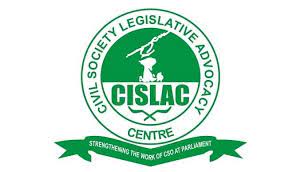The Civil Society Legislative Advocacy Centre (CISLAC) has called for more accountability and transparency in the Nigerian extractive sector.
Its Executive Director, Auwal Rafsanjani, disclosed this to newsmen in Lagos during a consultative forum on legal framework review in extractive sector.
Rafsanjani said that Nigerian Civil Society Organisations (CSOs) in the last two decades had been agitating for an improved and more accountable extractive sector.
He said the agitation was because the CSOs had observed that there had been absence of transparency and accountability in solid minerals, oil and gas sector.
He noted that corruption had undermined the sector and unfortunately not been curbed.
The executive director said that the extractive sector was a very important in generating revenue for the country and therefore it should be more transparent and accountable.
He commended the Nigerian Extractive Industries Transparency Initiative (NEITI) for the good job it was doing.
According to him, it was through NEITI that CSOs are able to know how many companies are paying taxes.
He said that it was also through NEITI’s records that many companies avoid tax payment were revealed.
“We are able to know that so much was going on in the extractive sector and more transparency has been created through NEITI records.
“The natural resources are supposed to help in providing more blessings for our country. But due to corruption, natural resources have become a ‘curse’ to our country.
“This is not good, especially as Nigeria has marked five decades of exploration and this oil has not helped in addressing poverty.
“It has not helped in improving or creating more industries or infrastructure that we are supposed to use as seen in other countries where oil has brought development.
“In our own country, it has brought more misery, it has exposed more people to corruption. It has also institutionalised laziness” he said.
The consultation engagement was made possible with support from the United States Agency for International Development (USAID) through the Strengthening Civic Advocacy and Local Engagement (SCALE) project being implemented by Palladium.




